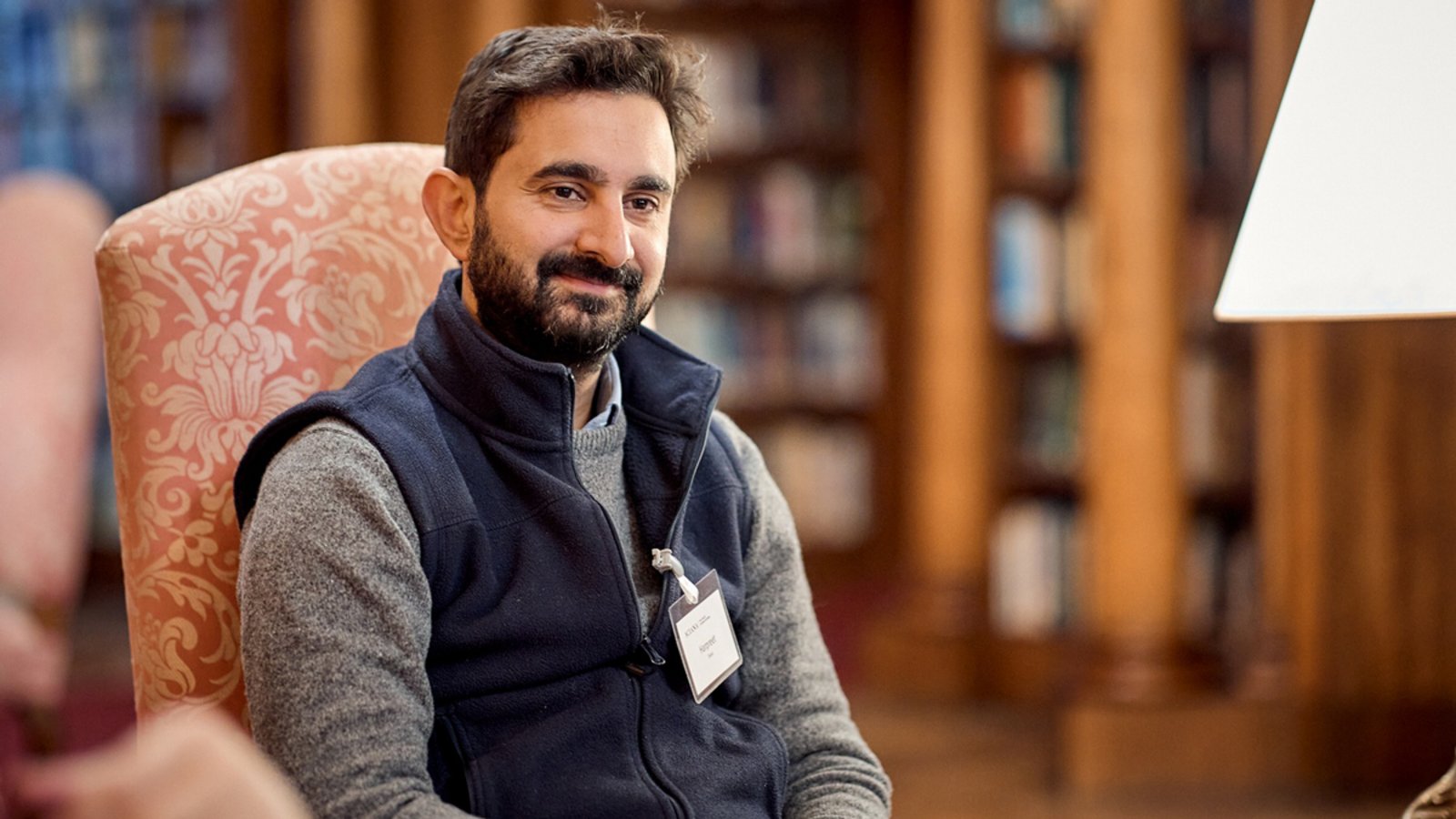 Harpreet Sood at a Sciana Network in-person residential meeting
Harpreet Sood at a Sciana Network in-person residential meeting
One Health, digital health, and everything in between
Sciana Fellow Harpreet Sood discusses his Sciana experience, One Health, and the challenges and opportunities in digital health
Harpreet Sood is an NHS primary care doctor in London and a digital health expert. He is also vice president, primary care, at Huma, a global health tech company. He has a portfolio of work advising health systems, digital health companies and investment firms.
He was formerly a board member at Health Education England, a £4.5bn organisation training and developing 160,000 staff across the NHS. Harpreet was also a clinical advisor to the NHS Covid-19 Vaccination Programme and, before this, the first associate chief clinical information officer (CCIO) at NHS England. He is a member of Sciana’s fifth cohort.
This interview has been edited for length and clarity.
Sciana Network: What has your experience with the Sciana Network been so far?
Harpreet Sood: My experience so far has been fantastic. Being a part of this network has been great. Through this, I have met inspiring colleagues from the UK, Switzerland, and Germany. As a cohort and with my peers, we are at very similar stages in our work trajectory and also battling the same challenges in our various health systems.
Sometimes, it is easy to remain insular within your own country and have a single view on what healthcare might look like. Networks like Sciana allow you to develop a new perspective because you get exposed to diverse and innovative ways of thinking for other solutions that might have already been developed or inspirational people who are driving and looking at health from a different lens.
SN: Reflecting on your background in digital health, what would have been some of the opportunities and challenges that existed in this sphere during the COVID-19 pandemic?
HS: In terms of the opportunities, one of the things that has been accelerated with COVID was the shift in attitude and behaviours in many of those [who] would have resisted using technology initially. People realised - especially those who were resisting in the first place - the usefulness and the ease of use of technology. The second thing that I saw change, which again is an opportunity for the healthcare system, was the way tasks were allocated, and this was people moving from things that they thought they had to do, mainly doctors, and allowing other members of their team to do that work.
In terms of barriers, to some extent, with technology, we rushed into rolling it out. We never figured out the rationale of why we would want to continue using it or the purpose of why we are using it. We need to pause and think about articulating the vision of where we want to go with this properly so that we start investing the finite resources we have in ensuring that we successfully utilise technology in a meaningful way.
SN: The Sciana Challenge for Cohort 5 is “Building a connected and sustainable health ecosystem based on one health principles and approaches.” How does this relate to your day-to-day work? Why is this Sciana Challenge of interest to you?
HS: The concept of “One Health” is interesting because, through my practice over the last few years, we have been thinking about how what we do in healthcare impacts climate change. Thinking about projects in this space has given me the awareness and ability to advocate for this particular work in a much more meaningful way. There is an exciting element in it because, ultimately, a big part of this is how we educate our leaders. Our work is to understand what health is and what that might mean because it has multiple consequences in different forms.
SN: How would you describe One Health to someone who is unfamiliar with it?
HS: To me, One Health is about how we can create an ecosystem that brings the three key parts of the planetary ecosystem together. Those key aspects are human health, animal health, and environmental health because they are all interacting in some shape or form. For example, if we think about the various pandemics that we have had over the years around avian flu or even COVID, many of them will have come from an animal source.
Since the last session, I have increasingly been thinking about asthma management in my local community. Many asthmatic patients have exacerbations because of the air pollution in the city. With progressive environmental health policies, we can reduce these exacerbations, especially amongst children. We can also actively think about climate, sustainability and health as we frequently prescribe use of inhalers, which impact the ecosystem, especially with the use of plastics and carbon emissions.




